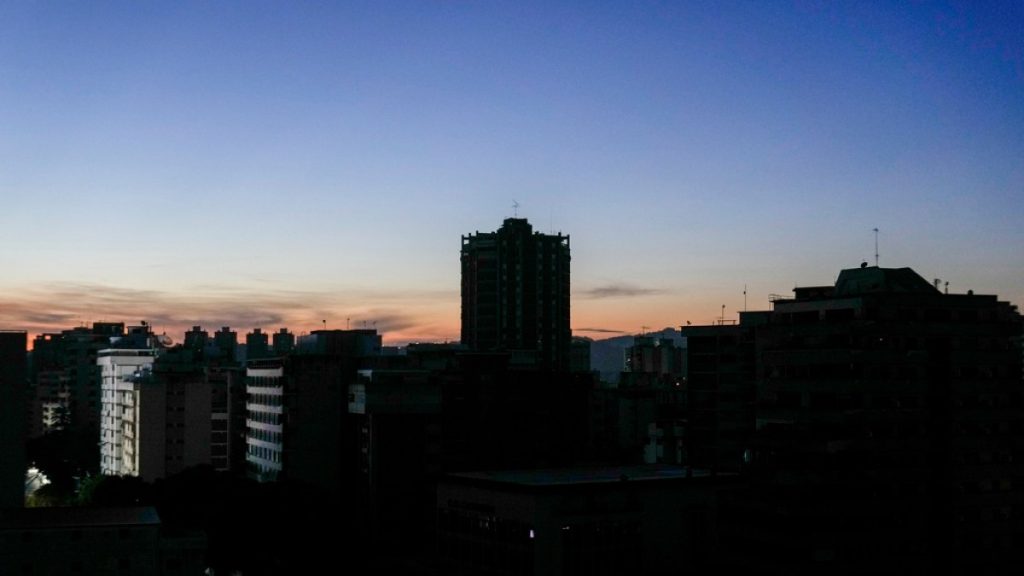In the aftermath of a contested presidential election in Venezuela, the country experienced a widespread power outage, with officials blaming saboteurs for targeting the national electricity network. The blackout affected almost all of the national territory, including the capital city of Caracas, leading to total or partial loss of electricity supply. Communications Minister Freddy Nanez stated that the government had been victims of electrical sabotage and was working to fully restore service, activating the entire national government to address the issue. This incident of power outage was not the first in Venezuela, with similar disruptions occurring in the past and often being attributed to saboteurs and opponents of President Nicolas Maduro’s government. Energy experts, however, suggested that the outages were a result of brush fires damaging transmission lines and poor maintenance of the country’s hydroelectric infrastructure.
Following the recent presidential election, smaller blackouts were reported in some states, which officials also blamed on sabotage. These outages coincided with antigovernment protests, with critics of Maduro taking to the streets to rally opposition to his rule exactly one month after the election. Interior Minister Diosdado Cabello, considered the second most powerful man in the country, condemned the opposition for what he believed to be a deliberate strategy to impact the population negatively. Despite these disruptions, residents of Caracas appeared to be taking the power outage in stride, with lighter than usual traffic during rush hour and complaints about difficulties in communicating with family members due to a lack of cellphone service.
The government’s quick attribution of the power outages to sabotage and opponents of Maduro’s government has been met with skepticism, as previous incidents have been attributed to reasons other than deliberate sabotage. During a period of political unrest in 2019, Venezuela experienced regular power outages that were also blamed on saboteurs, although energy experts believed the underlying causes were related to infrastructure issues. As the country faces ongoing challenges with its hydroelectric infrastructure and maintenance, power outages continue to be a recurring issue that impacts the daily lives of Venezuelans. The government’s response to these disruptions, including activating the entire national government to address the recent blackout, highlights the importance of maintaining and securing the country’s critical infrastructure.
The recurring nature of power outages in Venezuela, along with the government’s consistent attribution of these incidents to sabotage, raises questions about the underlying issues affecting the country’s energy infrastructure. While the government may use these disruptions to rally support and portray its opponents in a negative light, critics argue that the root causes need to be addressed to prevent future outages. With ongoing political unrest and economic challenges facing Venezuela, ensuring a reliable and secure electricity supply is essential for the well-being of its citizens. The recent power outage, coinciding with antigovernment protests and criticism of the opposition, further underscores the complexities of the situation and the need for a comprehensive approach to addressing the country’s energy challenges. As Venezuela navigates through these turbulent times, finding sustainable solutions to its power infrastructure issues will be crucial for ensuring stability and resilience in the face of ongoing political and economic uncertainties.













